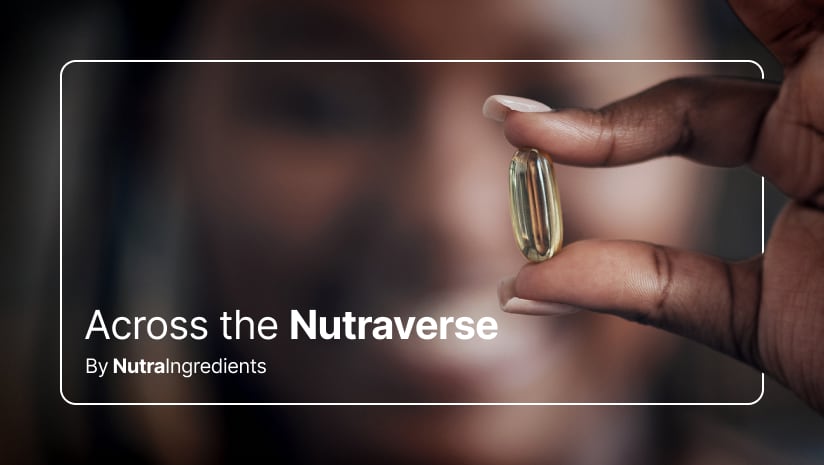Last week’s big news included the U.S. FDA sending warning letters about products containing 7-hydroxymitragynine (7-OH), Amway’s HEM Pharma partnership for new probiotic products, and the rise of ‘active parenting’.
FDA issues warning letters to companies marketing synthetic ‘kratom’
The U.S. FDA sent seven warning letters to companies that it says are illegally marketing products containing 7-hydroxymitragynine (7-OH), also known as synthetic ‘kratom’.
The companies, which are based in California, Florida and Texas, were targeted due to the FDA’s growing concern around novel potent opioid products being sold to U.S. consumers online, in smoke shops, gas stations and corner stores.
The letters focus on products that contain 7-OH as an added ingredient or have enhanced levels of 7-OH. Some of these products are considered “adulterated conventional foods or dietary supplements because 7-OH does not meet the relevant safety standard” and “others are unapproved new drugs with unproven claims such as relieving pain and managing anxiety,” the FDA wrote.
“Based on peer-reviewed research from leading experts, highly concentrated or semi-synthetic 7-OH products pose significant public health risks and have been falsely marketed as ‘kratom,’” Dr. Daniel Fabricant, PhD, president and CEO of the Natural Products Association, said in a statement. “These 7-OH products are not legitimate ‘dietary supplements,’ and NPA encourages FDA in collaboration with the U.S. Department of Justice to take any necessary steps to swiftly remove them from U.S. commerce.”
Robert Durkin, partner and co-chair of the regulatory group at law firm Amin Wasserman Gurnani, said he does not know why the FDA waited to send warning letters, as it has been aware of the risks posed by 7-OH for well over a year.
“[Waiting] might be due to the FDA’s entrenched position on kratom and the agency confusing 7-OH with kratom,” he noted. “Even in the 7-OH warning letters, FDA mentioned kratom. Fact is, 7-OH is not kratom. Saying 7-OH is kratom is like saying if someone took coffee beans, brewed a pot of coffee, extracted the caffeine from the coffee, converted it into something that isn’t in coffee and then calling whatever they created coffee. I think the agency let its mishandling of kratom confuse and delay this needed action on 7-OH.”
Amway deepens partnership with Korean microbiome firm HEM
Amway is developing new probiotic products and bringing microbiome testing and research to new markets as part of its expanded partnership with HEM Pharma.
The partnership started about a decade ago, and in 2022, the two companies launched a gut microbiome testing and personalized nutrition products branded “My Lab by Nutrilite” in South Korea.
So far, they have collected about 95,000 samples from the South Korean consumers who had subscribed to the gut microbiome testing and personalized nutrition service.
The samples come from different individuals, with some individuals providing multiple samples over time to assess changes in their gut microbiome.
With the samples collected from gut microbiome testing, the companies have been able to identify bacteria strains that could support certain physiological functions and formulate products based on these analyses.
Using these data, work is underway to formulate new probiotic products to support childhood nutrition and cognitive function in the Korean population, Dr. Yosep Ji, CEO of HEM Pharma, told NutraIngredients.
The rise of ‘Active Parenting’?
Parents make up a significant end-user demographic: According to data from the European Commission, nearly 25% of EU households had at least one child in 2024. And with the tracking parenting activity on the rise, this could represent an important white space in the active nutrition category.
The physical demands of parenting—such as constant movement, sleep deprivation, stress, heavy lifting and multitasking—align closely with the needs addressed by active nutrition brands, and new wearable tech data reveals the opportunity for active parent focused NPD may be growing.
The wearable health and fitness tracker Whoop launched several new activities that users could log last year, including baby-wearing, toddler-wearing, nursing a baby and dedicated parenting, along with ‘recovery’ activities like cuddling and playing with a child.
According to the Whoop’s annual data report, millennials (aged 29 to 44) were the top loggers of parenting-related activities. This is in line with exclusive data from Lumina Intelligence showing that as many as 78% of individuals between the ages of 25 and 34 use health apps, fitness trackers or similar tools.
Some brands are already representing the needs of parents of young children. For example, U.S. brand Needed is catering specifically to the new parent, with supplements that support ‘The Fourth Trimester’. Its CognatiQ supplement contains nine targeted nootropic and botanical ingredients formulated to support focus and attention, brain health and memory, and alleviate brain fog and eye fatigue.
French company Boome’s supplement Morale Boost—formulated with saffron, l-tyrosine and l-tryptophan—is also designed to help parents “get through the months following childbirth or any period of emotional stress more calmly.”
UK supplements brand Heights recently launched a hydration solution containing electrolytes and Cognizin citicoline to cater to everyday active consumers.
When marketing to parents, brands need to ensure the product will make a busy day easier, according to Sambhav Chadha, co-founder and director at influencer marketing company Augmentum Media.
“Convenience matters above all,” he told NI. “Brands need to have a super clear idea of when they fit into the parents’ day and how they can solidify their product as part of their daily routine.”



